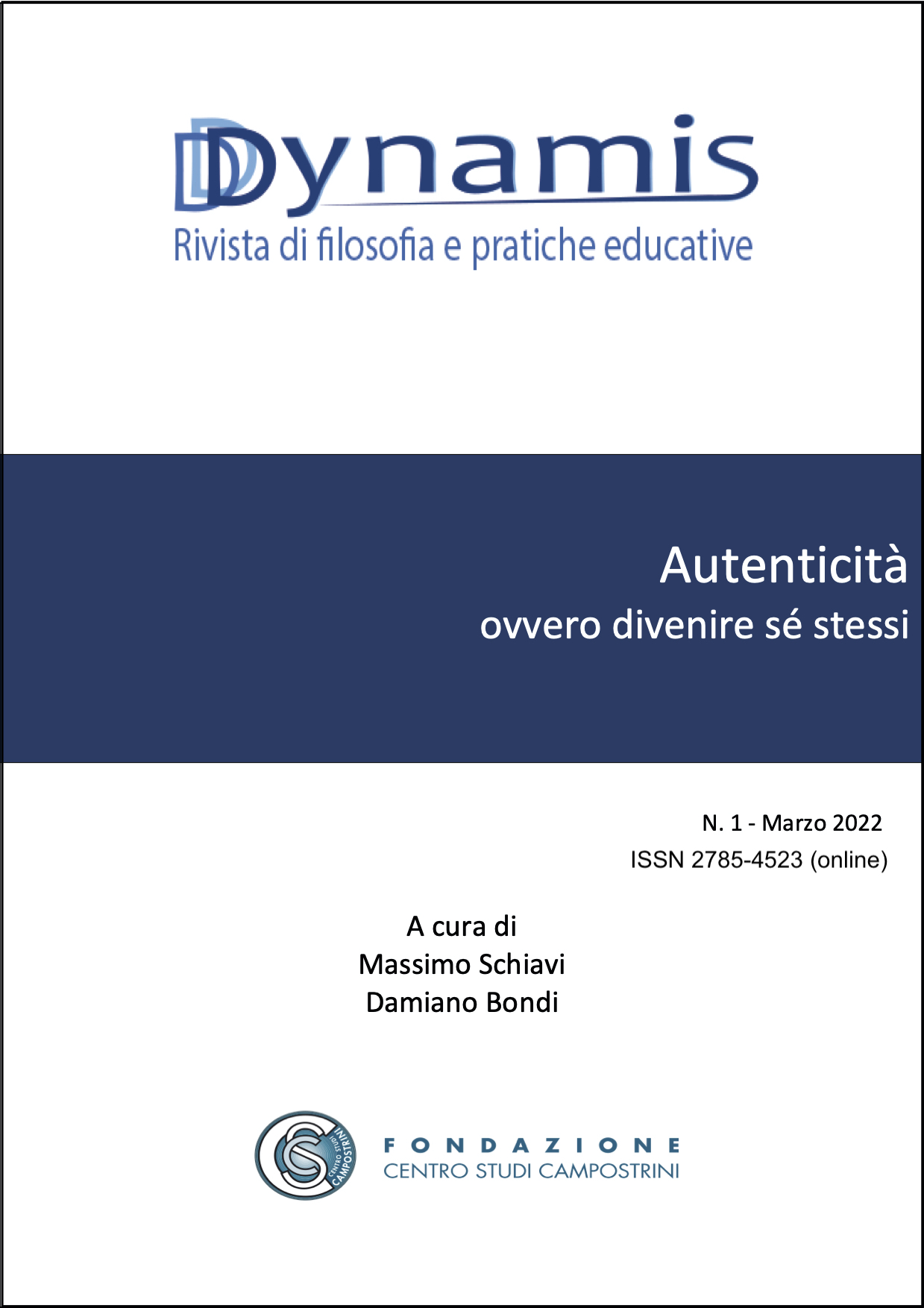Filosofia e letteratura
Narrare la vita con Claude Romano
DOI:
https://doi.org/10.53163/dyn.v1i1.43Parole chiave:
Letteratura, Filosofia, ipseità, narrazione, vitaAbstract
Nell’entretien pubblicato nel numero che la rivista Critique gli ha dedicato nel 2020, intitolato Le philosophe n’est pas celui qui habite une paroisse de la pensée, Claude Romano ripercorre la sua opera citando i riferimenti filosofici che hanno costituito i Wegmarken del suo pensiero. In queste pagine egli parla del suo incontro con l’opera di Husserl, Heidegger e, in generale con la tradizione fenomenologica con la quale ha dialogato e ancora dialoga, senza dimenticare tuttavia anche gli altri autori dai quali ha appreso quello che, con una metafora equestre, definisce “le galop de l’écriture”, ovvero quel galoppo della scrittura che lo ha condotto al dialogo con Jean-Jacques Rousseau, Michel de Montaigne, William Faulkner. Questa metafora, tuttavia, non è un artificio retorico ed è invece l’espressione di quell’ispirazione che, secondo Romano, deve guidare la ricerca filosofica; ispirazione che anima anche la letteratura sebbene il ruolo che essa riveste nei due campi (filosofico e letterario) sia diverso. Né questo legame di letteratura e filosofia è estraneo alla fenomenologia che anzi, secondo Romano, lo ha avuto e ha a cuore; un legame che è “uno dei punti di forza del pensiero europeo” e che ha portato Romano alla composizione de Le chant de la vie. Phénoménologie de Faulkner (2005).L’articolo indaga il legame tra filosofia e letteratura così come esso è presentato da Romano sostenendo che nella narrazione della vita quest’ultima si e-duce, ossia si trae fuori inaugurando una scena che è per tutti e mostrando il ruolo dell’intreccio letteratura-filosofia nella proposta dell’ipseità e dell’autenticità cui Romano si è dedicato a partire dal 2019.
##submission.downloads##
Pubblicato
Versioni
- 22-03-2022 (2)
- 04-03-2022 (1)
Come citare
Fascicolo
Sezione
Licenza
Copyright (c) 2022 Carla Canullo

Questo lavoro è fornito con la licenza Creative Commons Attribuzione - Non commerciale - Non opere derivate 4.0 Internazionale.




